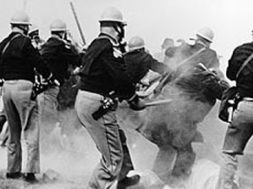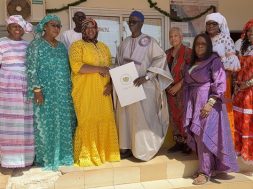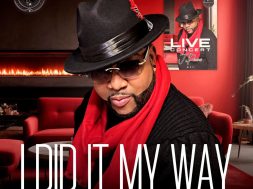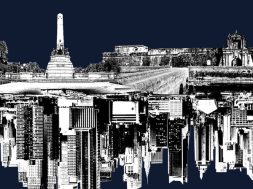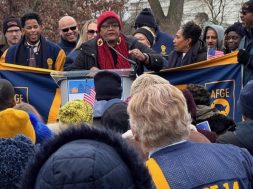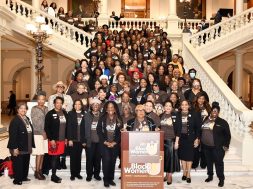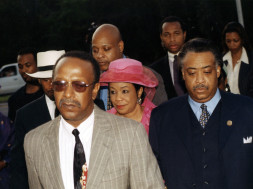
Juan Williams is no Bigot—But what Have We Learned?

By Chuck Hobbs, Esq.As children, most of us are usually taught by our parents that some things are better left unsaid.
As I watched the Juan Williams fiasco turn from a molehill into a mountain this past week, I was reminded of that childhood admonition. For those too busy to see or hear the latest battle in the political correctness war, Williams, responding to Bill O’Reilly’s self analysis of his own comments about America’s “Muslim attackers” the week before on ABC’s The View, said “Look, Bill, I’m not a bigot. …You know the kind of books I’ve written about the civil rights movement in this country. … But when I get on the plane, I got to tell you, if I see people who are in Muslim garb and I think, you know, they are identifying themselves first and foremost as Muslims, I get worried. I get nervous.”
Within 24 hours of saying those words, Williams became the center of a national firestorm and the subject of feature stories and articles as major news anchors, pundits and politicians alike weighed in on the latest round of dissension regarding free speech.
Did Juan Williams have a right to say what he said? Absolutely, as such is guaranteed by the First Amendment of the Constitution.
Should Juan Williams have said what he said? Well, that depends greatly upon one’s point of view.
In an era in which comments about or against Muslims soon turn into a game of political hot potato; one can easily conclude that Williams may have been better off keeping his own counsel on this subject. Williams’ detractors have long questioned the fact that he seemingly takes one stance on the left leaning NPR and an entirely different stance on the heavily right leaning Fox News.
While he only appeared on O’Reilly’s show for a few minutes, it is clear that O’Reilly, who is not a personal favorite of mine, was attempting to use Williams’ credibility as an expert on the civil rights movement to validate his own views about whether America’s attackers should be called “Muslims” or “terrorists/extremists.”
O’Reilly argues that there should be no delineation between the two, the same as the fact that during World War II the enemy was not referred to as German Ideologues or Japanese Militants. While there is certain logic to O’Reilly’s point, the truth of the matter is that O’Reilly, and many of his ilk, are appealing to the more base reactions among people who do not know the difference between a moderate or a radical Muslim.
With that in mind, it is clear that those in the public forum should be more responsible with how we phrase opinions as words can either inspire greatness or appeal to the lowest denominator.
Two months ago, in my own column space I wrote about my displeasure that a Mosque was going to be built near Ground Zero in New York City. The feedback that I received from several Muslim fraternity brothers and readers made me realize their concerns that Muslims, in general, are being painted with a broad brush because of the cowardly acts of the 9/11 attackers.
In that vein, Williams, as did I, must confront the anger, frustration or fears that lead him to be suspicious of “any” Muslim in traditional garb, or with respect to my previous column, “any” mosque being built near Ground Zero.
As to the predictable backlash from the Right—those calling for NPR’s congressional funding to be yanked—and from the left—that Williams is a bigot who deserved to be canned—the truth, as with many things, is actually somewhere in the middle.
Williams is far from a bigot—as his writings have chronicled the lives and works of many of the most influential actors within the Civil Rights movement and its aftermath. Twice, I have had the opportunity to meet Williams, most recently two years ago at the Republican National Convention in Minneapolis. That year I was fortunate to share press credentials with several minority bloggers and I happened upon Williams during a break in the long tedium that comprises the daytime segments of any political convention. Unlike several other nationally known pundits that I was in close proximity to that week, Williams did not carry himself with an aura of arrogance and very graciously took time to answer my questions as an aspiring political commentator. I distinctly remember that Williams spent nearly an hour with me discussing his peregrination from a young journalist at the Washington Post to nationally renowned and syndicated pundit.
An hours worth of time does not make me an authority on Williams’ character, but that time, coupled with the many articles and books of his that I have read, lead me to conclude that in this latest instance, Williams was simply trying to convey his fears to a national audience.
Cynics, of course, may point to the fact that Williams lost one job to earn 2 million dollars at another is not a bad exchange. But if Williams’ conscience is as strong as I suspect, the fact that some now view him as a bigot must be disconcerting.
Williams should use both his eloquent pen and voice to defend against such notions. As a civil rights advocate, Williams should be held to the high standard of eschewing bigotry. And yet, as those who analyze his words, we should leave room to understand that Williams is still human, fraught with the same frailties and fears that stymie us all at one point or another within our lives. It is only when we confront these fears, not in 30 second sound bytes on the O’Reilly Factor but in our daily lives and conversations, will we continue on the Utopian path to a prejudice free society.

